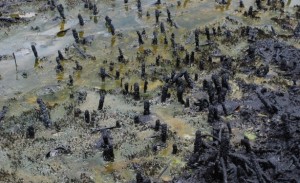Tanzania: Salty Soils Drive Farmers Into Forest Reserve
 Rufiji — Thousands of farmers in Tanzania’s Rufiji Delta have been accused of destroying mangroves as they search for new land to grow their rice crops, which are being damaged by salt-water intrusion.
Rufiji — Thousands of farmers in Tanzania’s Rufiji Delta have been accused of destroying mangroves as they search for new land to grow their rice crops, which are being damaged by salt-water intrusion.
The salt water, pushed inland by surging tides from the Indian Ocean, is damaging fields of rice seedlings. Farmers in several villages in the river basin, which sprawls across the east African nation’s southern half, have seen yields fall as a result.
With thousands of hectares affected by saline intrusion, it is becoming harder for the inhabitants of Salale ward to earn a living from rice cultivation, which has been the mainstay of the local economy.
“It is the poor who suffer,” said Henri Laswai, an agricultural expert at Sokoine University in Morogogo. He attributed the problem to worsening climate change impacts.
Scientists have linked the growing problem of saltwater intrusion at least partially with climate change, as sea levels rise. Higher seas inundate wetlands and other low-lying lands, intensify flooding, and increase the salinity of rivers and groundwater tables, according to the U.S. Environmental Protection Agency.
In the Rufiji Delta, farmers have been moving away from the increasingly salty rivers, where most paddy fields are located, further out into the delta in search of fresh water and better land. But some are encroaching on protected mangrove swamps in their search for new, fertile fields.
The scramble for land has created conflict between Rufiji residents and government authorities who want to stop local people invading protected sites.
Saline intrusion has forced farmers in Nyamisati village in Salale ward, around 250 km from Dar es Salaam, to move to areas such as Bunga and Mchinga where the soil is still very fertile.









